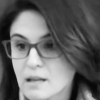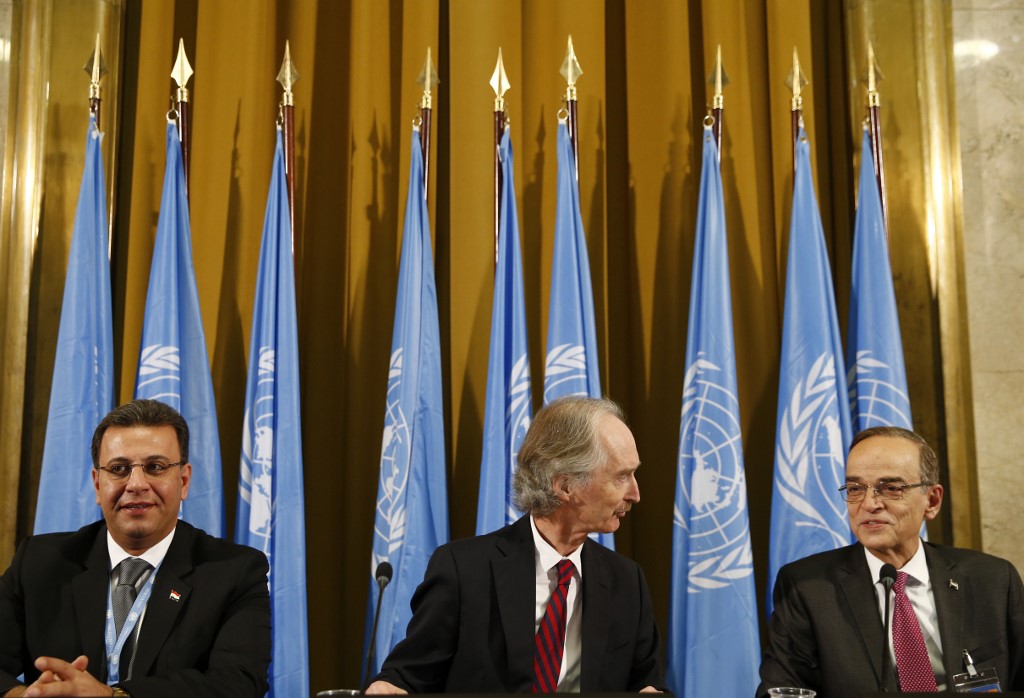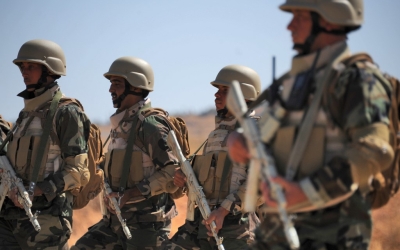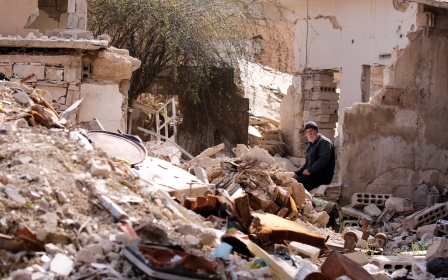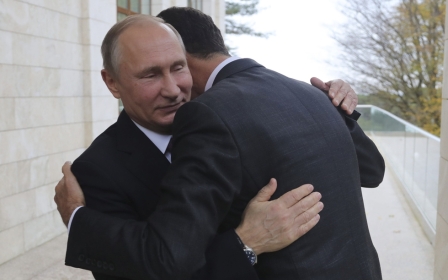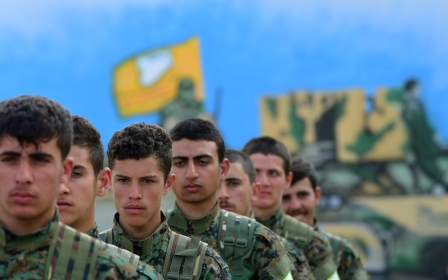Negotiating a democratic Syria: An impossible challenge?
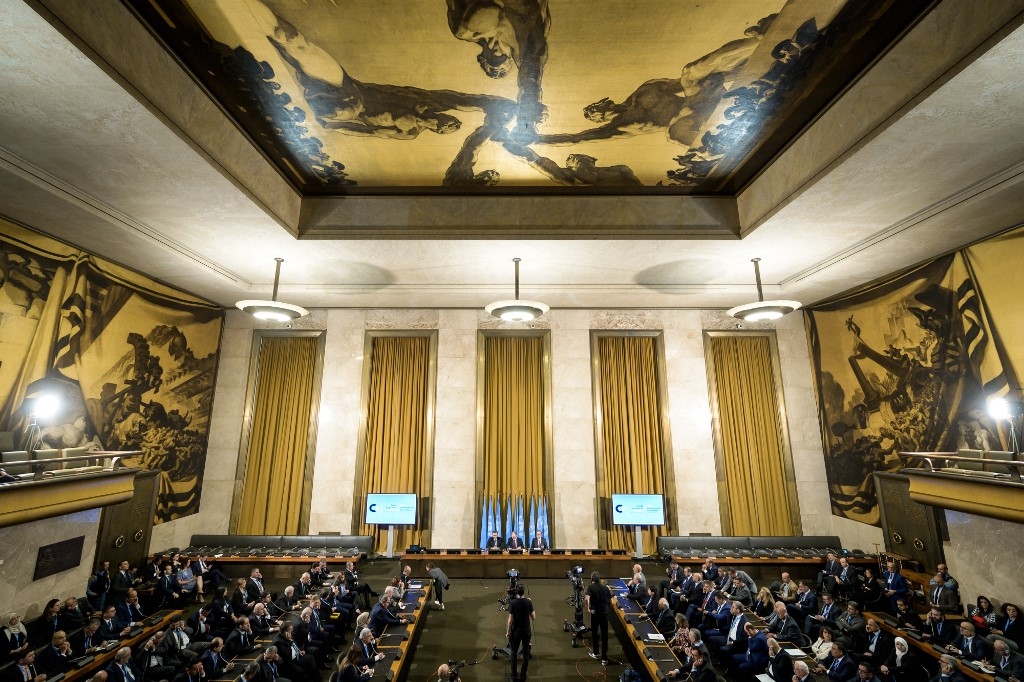
Syria’s government and opposition members are meeting in the Swiss city of Geneva this week with the task of drafting a new constitution for the war-torn country.
The meeting comes amid feeble hopes that the languishing peace process may be revived, eight years into a conflict that has killed more than 500,000 people and displaced millions.
The UN special envoy for Syria, Norway’s Geir Pedersen, told reporters on Monday that the process of drafting the constitution that will pave the way for elections that would be “Syrian-led and Syrian-owned”, with the UN standing by to provide “secretarial assistance”.
He sounded optimistic, as though developments on the ground in Idlib and northeastern Syria were far from his logistical preoccupations, and said the constitution would ultimately be put to the vote of the Syrian people.
The upper hand
After eight years of unfruitful negotiations, the reshaping of opposition groups under the influence of foreign powers, and developments on the ground that eventually led Damascus to have the upper hand in negotiations, the drafting of a new constitution that would bring about a democratic Syria seems an impossible challenge.
Whether this project will ever see the light of day is so difficult to predict that Pedersen’s mention of a national vote sounded surreal. Half of Syria’s prewar population has been displaced, thousands still live under siege or in makeshift camps, and more than 100,000 have just fled from the northeast, where the regime has reconquered oil-rich territory under the umbrella of a foreign power.
Developments on the ground show how badly a political process is needed, and the creation of a constitutional committee may pave the way for significant change
Millions of Syrians don’t think it is safe to return to their homes, for fear of reprisals. How they could possibly vote to approve a new constitution is not at all clear.
But Pedersen argued that developments on the ground show how badly a political process is needed, and the creation of a constitutional committee may pave the way for significant change.
The process of finalising the list of 150 members on the constitutional committee was a gruelling one, which took almost two years and two UN envoys to be completed, with input from government, opposition and civil society leaders. The list went back and forth between Damascus and Riyadh, a sponsor of the Syrian opposition, and Damascus vetoed many opposition names, resulting in a list of members who might have limited impact on the ground.
“Some of the opposition leaders present in Geneva do not have a lot of influence on field commanders and their units, and some of the forces fighting on the ground are not properly represented in the constitutional committee,” said Andrey Kortunov, director general of the Russian International Affairs Council.
A new chapter
Writing a new charter in an expedited way will be the first challenge, considering that two days before the talks, the parties were still discussing the seating arrangements. First and foremost, it will be essential for the members to look at each other as working partners, rather than enemies.
Another stumbling block may be one of the rules of procedure. The approval of any draft constitution will pass only with a 75 percent majority vote. Such a high threshold may be a recipe for paralysis, but Pedersen said it is necessary to guarantee that one side will not impose any decision on the other.
Members of the committee interviewed in Geneva said the aim would be to draft a new constitution, rather than to review the 2012 charter introduced by President Bashar al-Assad in response to the civil unrest at the time. It introduced a multiparty system and multi-candidate presidential elections - but in reality, nothing changed. The 2012 constitutional framework was designed to keep Assad in place until 2028 and to let his family retain power forever.
The members will have to address controversial issues, such as whether the president would remain in control of the intelligence agencies and the army as commander-in-chief. So far the army and the intelligence have functioned as the armed and security wings of the Baath Party, which retains complete control of the country.
The members will also address the issue of presidential control over the judicial system. The president, who heads the High Judicial Council, has exercised complete control over the judiciary, using it as a tool to eliminate his political opponents.
Barriers to agreement
The question remains as to whether those who have been excluded from the committee in Geneva - in particular, the Kurdish militias forming the Syrian Democratic Forces - will accept the new constitutional framework.
“The absence of YPG [the Kurdish People’s Protection Units] may eventually create problems for a peace settlement if the Kurdish leaders will feel excluded and marginalised in the new political arrangement,” Kortunov said.
It is clear that Turkey objected to the YPG’s participation, and Damascus - while open to discussing engagement with the YPG - would not accept some of the Kurdish demands, such as military autonomy, Kortunov added. “Now the absence of Kurdish leaders at the table in Geneva will be used by the opponents of the constitutional committee to delegitimise the body.”
Members of the opposition, however, were optimistic about the task ahead. Yahia al-Aridi, spokesperson for the Syrian High Negotiations Committee and a member of the constitutional committee, said he was hopeful that the committee would produce a draft constitution in a timely fashion.
“We are hopeful this will be a new starting point for Syria,” Aridi said. This is the political process we have been [seeking] for a long time; it’s finally the time.”
Developments on the ground
No foreign powers were invited to the launch of the committee, to stress that it would be “Syrian-led and Syrian-owned”. But foreign ministers from Iran, Russia and Turkey, whose armies have boots on the ground in Syria alongside US forces now stationed to watch the oil fields, made their presence visible in the Swiss city on Tuesday night.
There is general agreement now that Russia holds the keys to a solution to the Syrian conundrum
“It will be a difficult and challenging process that the international community must support,” Iranian Foreign Minister Mohammad Javad Zarif told a joint news conference, adding a veiled warning for the 150 committee members: “But let me be clear, there is no other game in town.”
With no deadline being imposed on the committee, however, the drafting of a new charter may drag on for a long time, while events on the ground follow a different logic and momentum. So far, the negotiating process has been determined by military developments on the ground and the strategic interests of foreign powers, especially Russia.
There is general agreement now that Russia holds the keys to a solution to the Syrian conundrum, having entertained constructive relations with neighbouring countries and a coherent position throughout the conflict - in stark contrast to inconsistent, unpredictable US policy.
As the former UN envoy to Syria, Staffan de Mistura, candidly admitted in a recent TV interview, when issues get too difficult and entangled, “a call from the Kremlin can fix the problem”. Pedersen will know which number to dial if discussions reach a deadlock.
The views expressed in this article belong to the author and do not necessarily reflect the editorial policy of Middle East Eye.
This article is available in French on Middle East Eye French edition.
Middle East Eye propose une couverture et une analyse indépendantes et incomparables du Moyen-Orient, de l’Afrique du Nord et d’autres régions du monde. Pour en savoir plus sur la reprise de ce contenu et les frais qui s’appliquent, veuillez remplir ce formulaire [en anglais]. Pour en savoir plus sur MEE, cliquez ici [en anglais].


